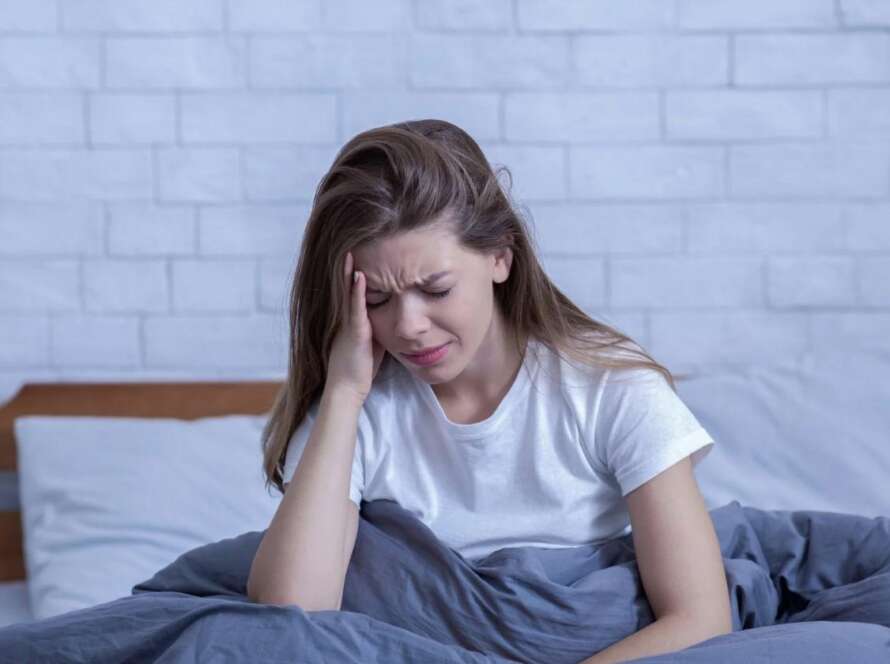Have you ever wondered about the mysterious world of sleep? 2 fascinating sleep experiences are sleep apnea and sleep paralysis. Although they sound a bit scary, they’re really interesting to learn about.
Sleep apnea is when someone stops breathing for short periods while sleeping. Sleep paralysis happens when you can’t move or speak just as you’re waking up or falling asleep. Can one cause the other?
Let’s dive into this intriguing topic and uncover the secrets of our sleeping minds!
Link Between Apnea & Paralysis
Shared Risk Factors
Sleep apnea and sleep paralysis share some common risk factors. Things like stress, not getting enough sleep, and certain health issues can increase the chances of both. Understanding these risks can help us take better care of our sleep health.
Exacerbation Through Apnea
Sleep apnea can make sleep paralysis more likely. When someone has sleep apnea, their sleep often gets disturbed. These interruptions can trigger episodes of sleep paralysis. So, managing sleep apnea effectively is key to reducing the risk of sleep paralysis.
Improving Sleep Health
Good sleep health can lessen both sleep apnea and sleep paralysis. Simple steps like maintaining a regular sleep schedule, sleeping in a comfortable environment, and staying healthy are beneficial. These actions help ensure a restful night, keeping these sleep issues at bay.
Causes
Physiological Factors
Physiological factors, like how our body works and changes, play a big role in sleep apnea and paralysis. Muscle relaxation during sleep, brain activity, and how air moves in and out of our lungs can affect these conditions.
Understanding our body’s functions helps us grasp why these sleep issues occur.
Genetic Predispositions
Our genes can also influence our risk for sleep apnea and sleep paralysis. We have a higher chance of experiencing them, too, if family members have these conditions. Genetics guide how our body handles sleep, making it important in these sleep issues.
Lifestyle Influences
Our daily habits and lifestyle choices impact our sleep. Poor sleep habits, stress, and not exercising can increase the risk of sleep apnea and sleep paralysis. Choosing a healthier lifestyle can help reduce these risks and improve sleep quality.
Overlapping Causes
Some causes are common to sleep apnea and sleep paralysis, like disrupted sleep patterns and stress. Recognizing these overlapping causes allows us to address both conditions more effectively.
By tackling these common factors, we can improve our sleep and reduce the occurrence of both issues.
Symptoms
Nighttime Disruptions
People with sleep apnea and sleep paralysis often face interruptions at night. In sleep apnea, you could wake up several times, struggling to breathe properly. Sleep paralysis involves waking up unable to move or speak, which is startling.
Regular sleep is disturbed, making it hard to get a good night’s rest.
Daytime Fatigue
Daytime tiredness is a big symptom of both sleep apnea and sleep paralysis. These conditions disrupt the quality of your sleep even if you spend enough hours in bed.
This leads to feeling sleepy and exhausted during the day, affecting your energy and motivation for daily activities.
Emotional Impact
Dealing with sleep apnea and sleep paralysis can take a toll on your emotions. You can feel more stressed or worry about getting enough sleep.
While these feelings are common, understanding and addressing your sleep issues can lead to better sleep and brighter moods.
Cognitive Effects
These sleep disorders can also impact your mental functions. When you have either of these conditions, you will notice it’s harder to think clearly or remember details. Sleep is crucial for our brains to function well.
Improving your sleep can help enhance your focus and memory skills.
Diagnosis And Treatment
Professional Consultation
Seeing a doctor is a smart first step if you think you have sleep apnea or sleep paralysis. They can check your symptoms and guide you on what to do next.
Doctors have the knowledge and tools to determine what’s causing your sleep troubles and how to fix them.
Sleep Studies
A sleep study is a special test doctors use to understand your sleep better. In this test, you’ll sleep in a lab while machines record your breathing, heart rate, and brain activity.
This helps doctors see exactly what happens when you’re sleeping and diagnose any issues accurately.
Apnea Management Devices
For sleep apnea, doctors often suggest ways to keep air moving, such as oral medical devices and/or PAP machines, so the patient breathes better at night.
Using these devices can greatly improve your sleep quality and health.
Medication And Therapy
Sometimes, doctors prescribe medication to help with sleep paralysis or the side effects of sleep apnea. Therapy can also be useful. Techniques like cognitive-behavioral therapy (CBT) help manage the stress and anxiety linked with these sleep conditions.
These treatments aim to give you a more peaceful and restful sleep.
Prevention Tips
Healthy Sleep Hygiene
One of the best ways to prevent sleep apnea and sleep paralysis is to practice good sleep hygiene. This means setting a regular bedtime, ensuring your bedroom is quiet and dark, and avoiding screens before sleep.
Good sleep habits help your body get into a rhythm, leading to deeper and more restful sleep.
Weight Management
Keeping a healthy weight is crucial for preventing sleep apnea. Extra weight, especially around the neck, can block airways during sleep. Eating balanced meals and maintaining a healthy weight can reduce the risk of sleep apnea and improve overall sleep quality.
Stress Reduction
Stress can disrupt your sleep, leading to both sleep apnea and sleep paralysis. Finding ways to relax, like deep breathing, meditation, or doing activities you enjoy, can lower stress levels. Less stress means better sleep and a happier, healthier life.
Regular Exercise
Exercise is great for your sleep! It keeps your heart healthy and can improve the quality of your sleep. Regular physical activity, especially aerobic exercises like walking or swimming, can strengthen your heart and lungs.
This improves sleep quality and reduces the chances of sleep disorders.
FAQs
1. Can Sleep Apnea Cause Sleep Paralysis?
Yes, sleep apnea can sometimes lead to sleep paralysis. With sleep apnea, your breathing stops and starts again as you sleep.
This messes up your sleep and can make you experience sleep paralysis, where you can’t move or talk when waking up or falling asleep.
2. What Triggers Sleep Paralysis?
Sleep paralysis can happen if you change your sleep times or don’t sleep well. Feeling stressed, lying on your back while sleeping, and some kinds of medicine can also make it happen.
Sleeping at the same time every night and relaxing can help stop it.
3. What Can Be Mistaken As Sleep Paralysis?
Sometimes, what you think is sleep paralysis is just a scary dream or nightmare. Other times, things like panic attacks or seizures feel like sleep paralysis. It’s a good idea to talk to a doctor if you’re unsure.
Conclusion
Understanding the link between sleep apnea and sleep paralysis helps us take better care of our sleep. It’s interesting to see how these 2 conditions affect each other.
It’s good to know that this sometimes leads to sleep paralysis if you have sleep apnea. But here’s the good news: with the right habits and help, both can be managed well.
Sticking to a healthy sleep routine, managing stress, and staying in shape are key. Doctors are there to guide you if you ever feel overwhelmed. Remember, a peaceful night’s sleep isn’t just a dream – it is your reality!

